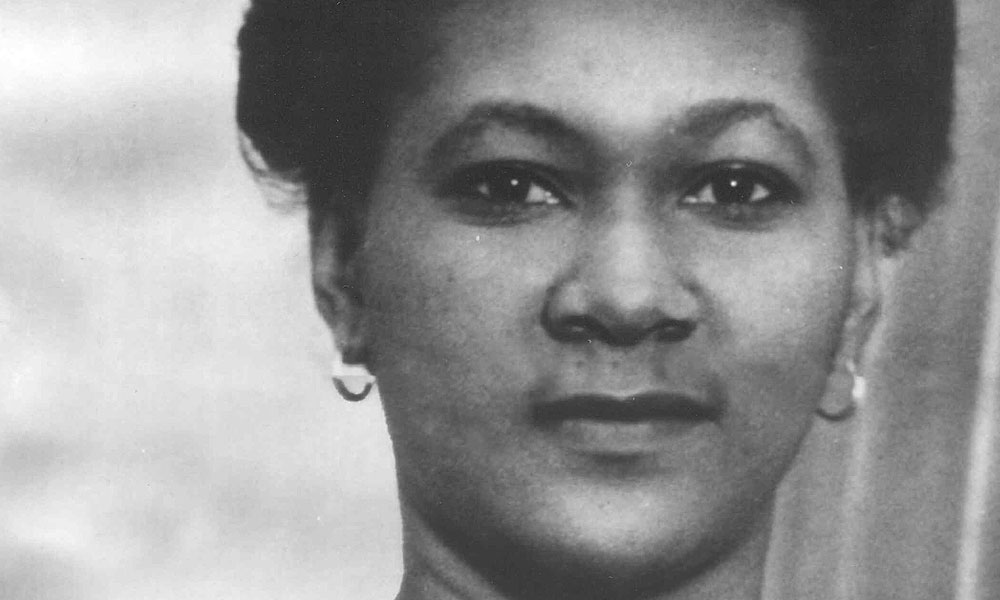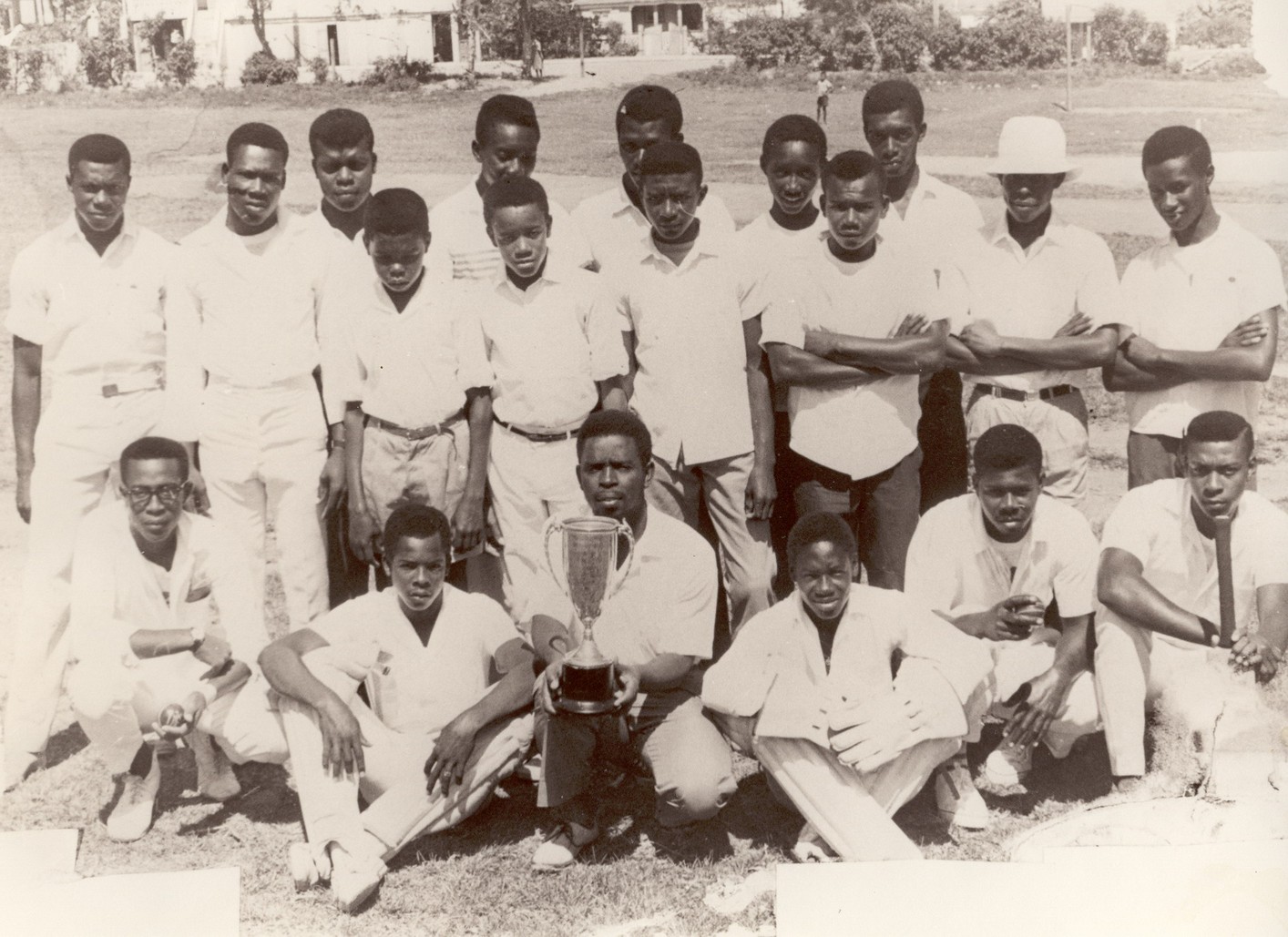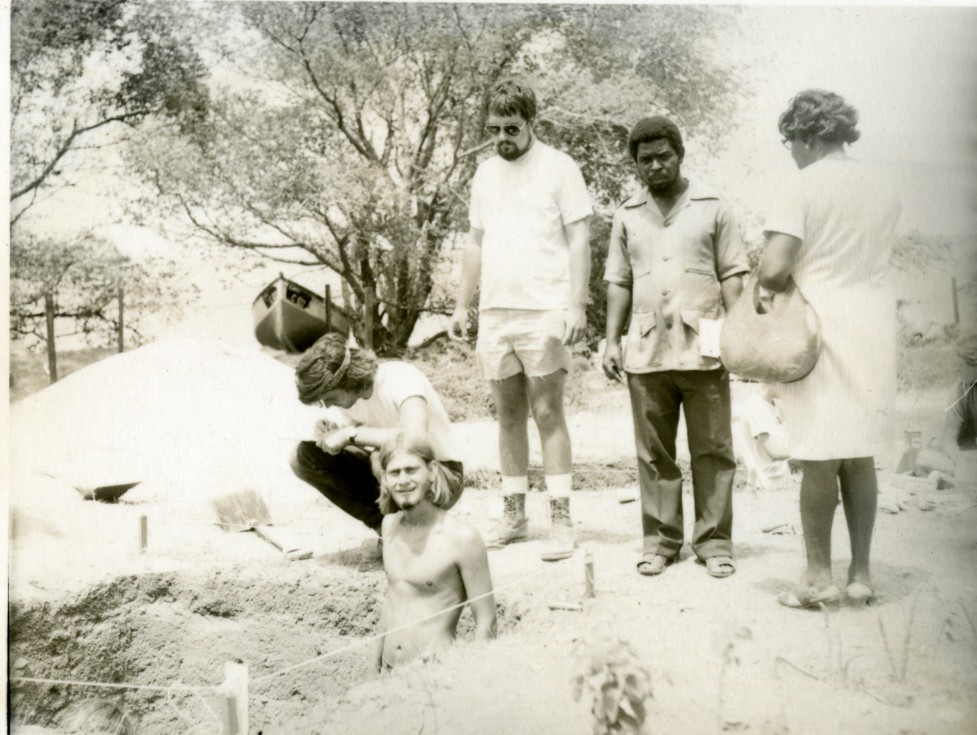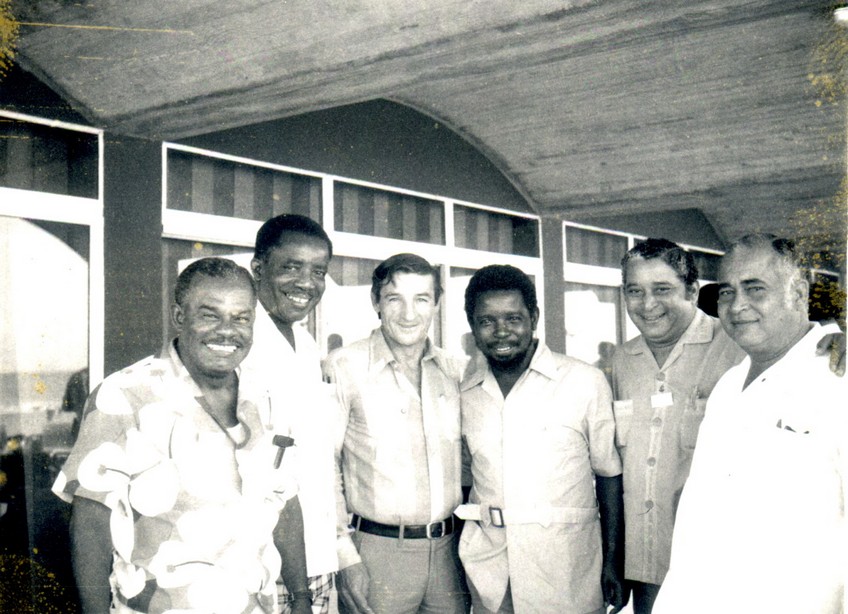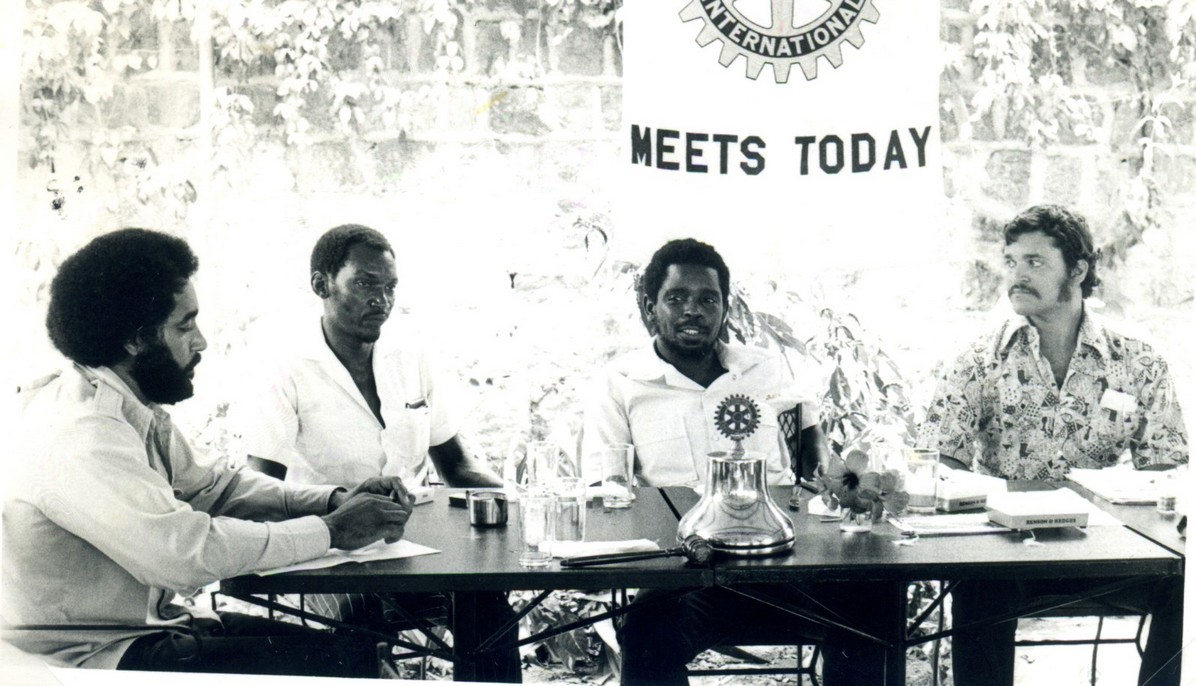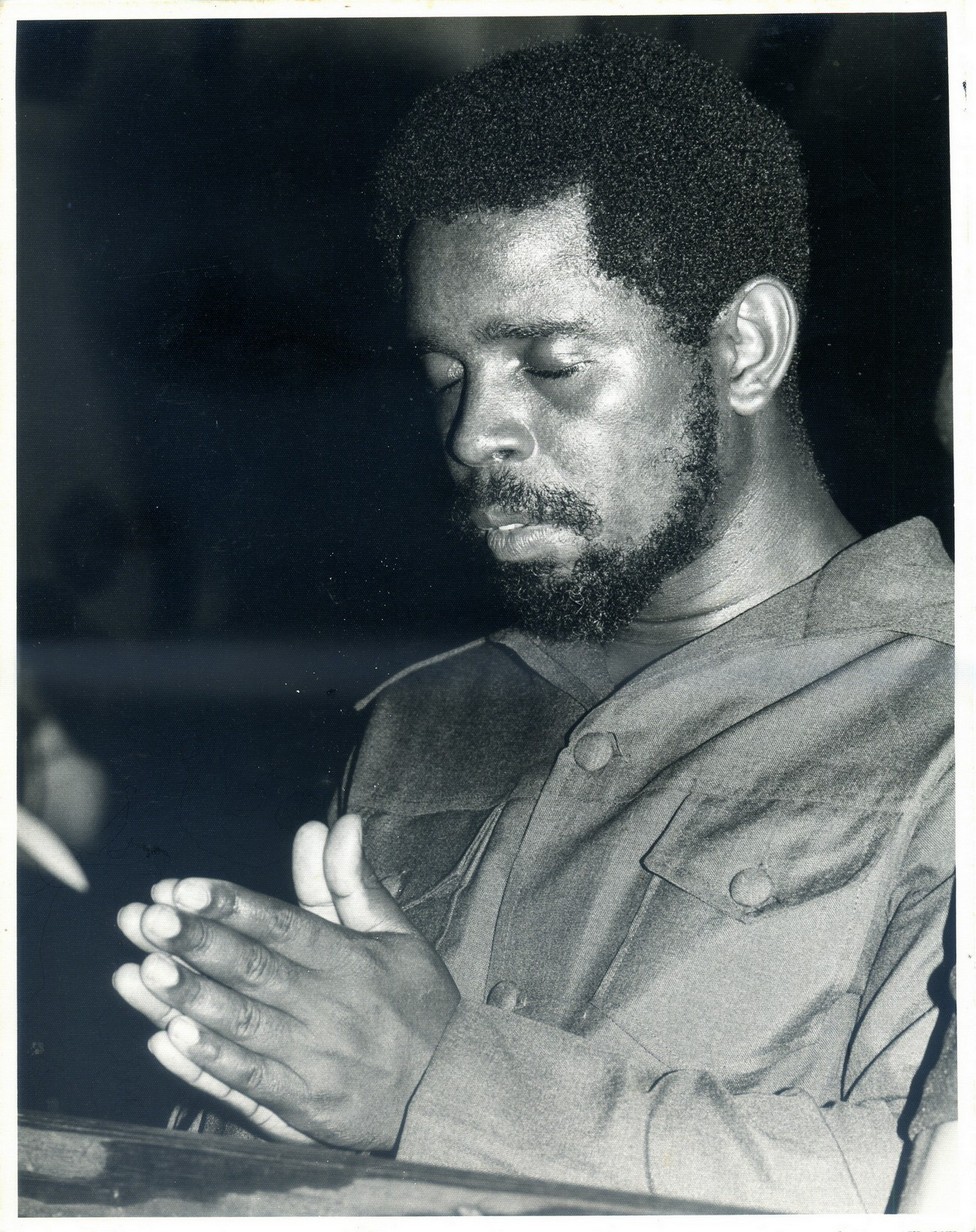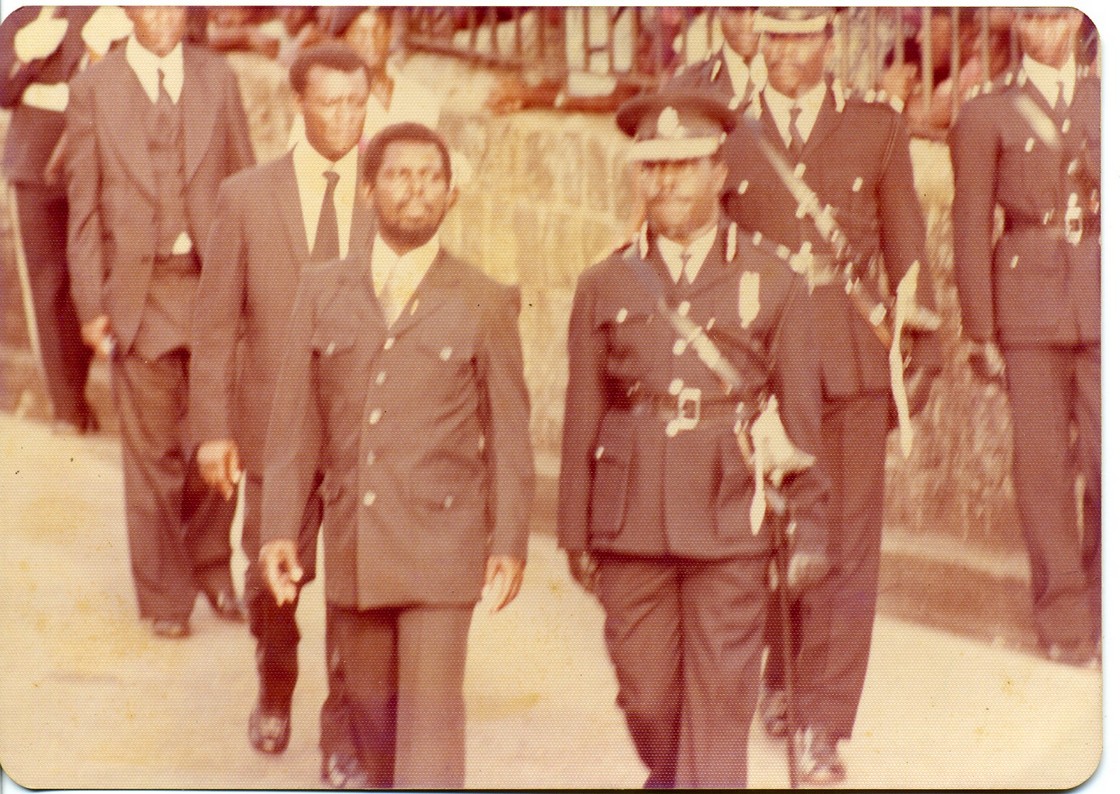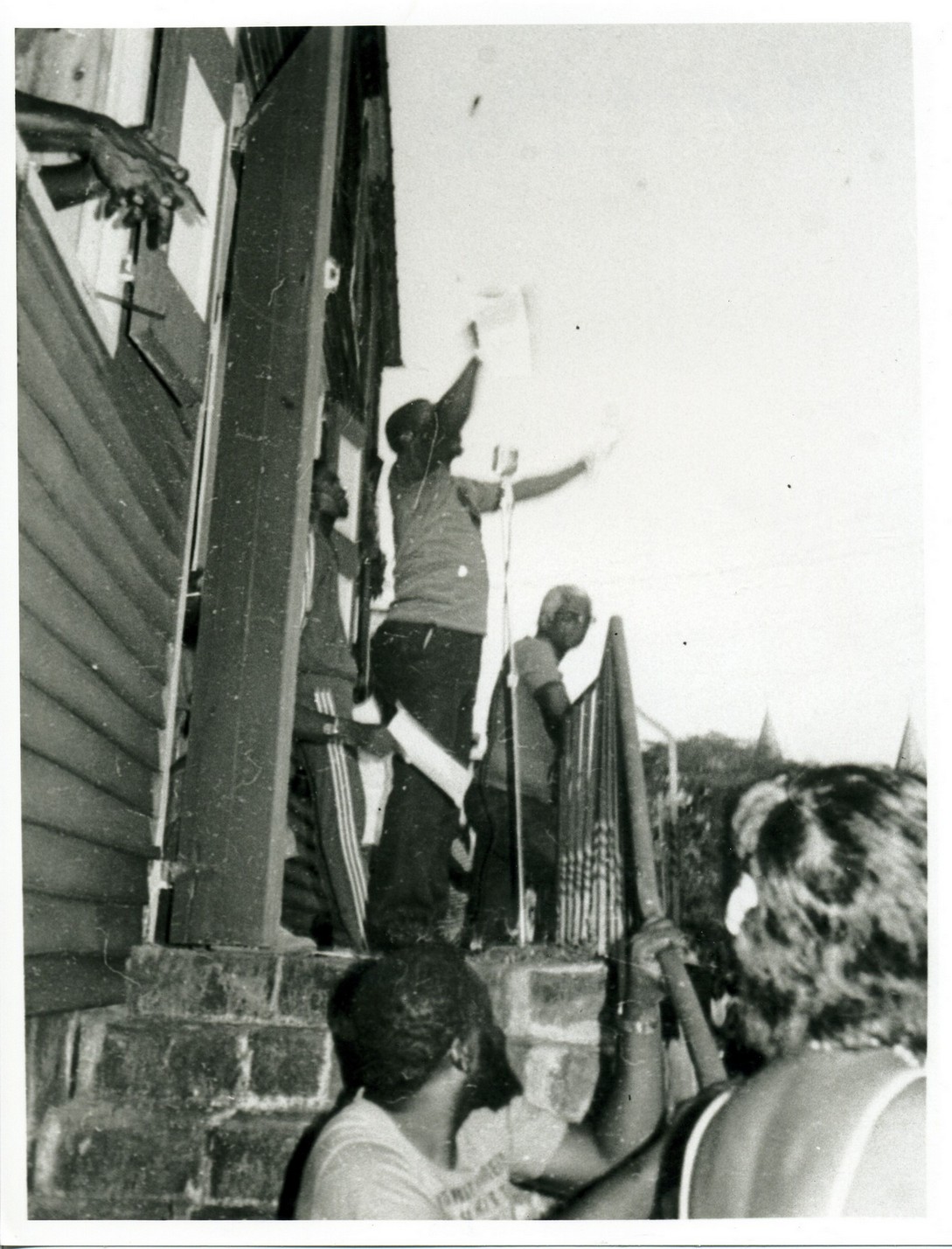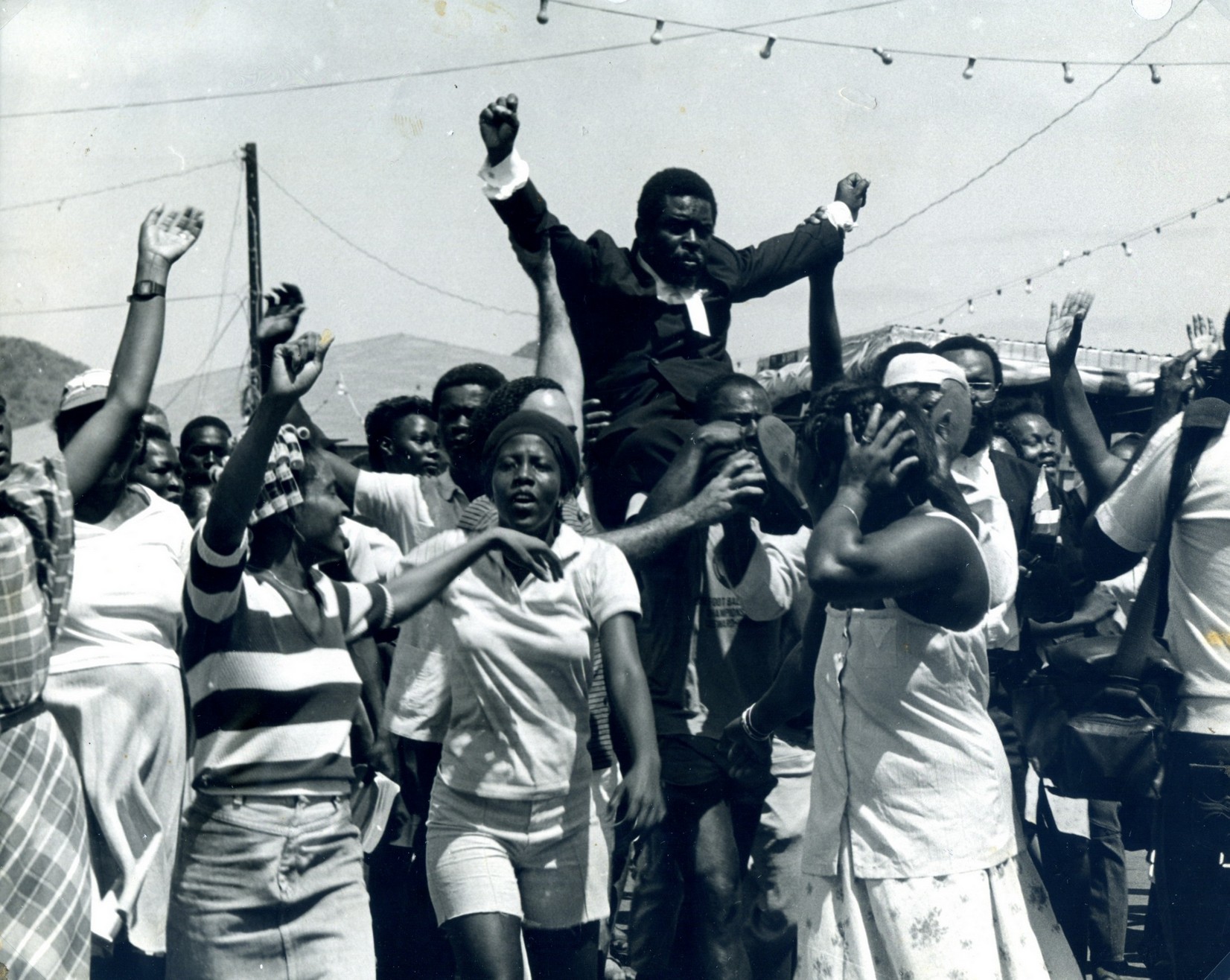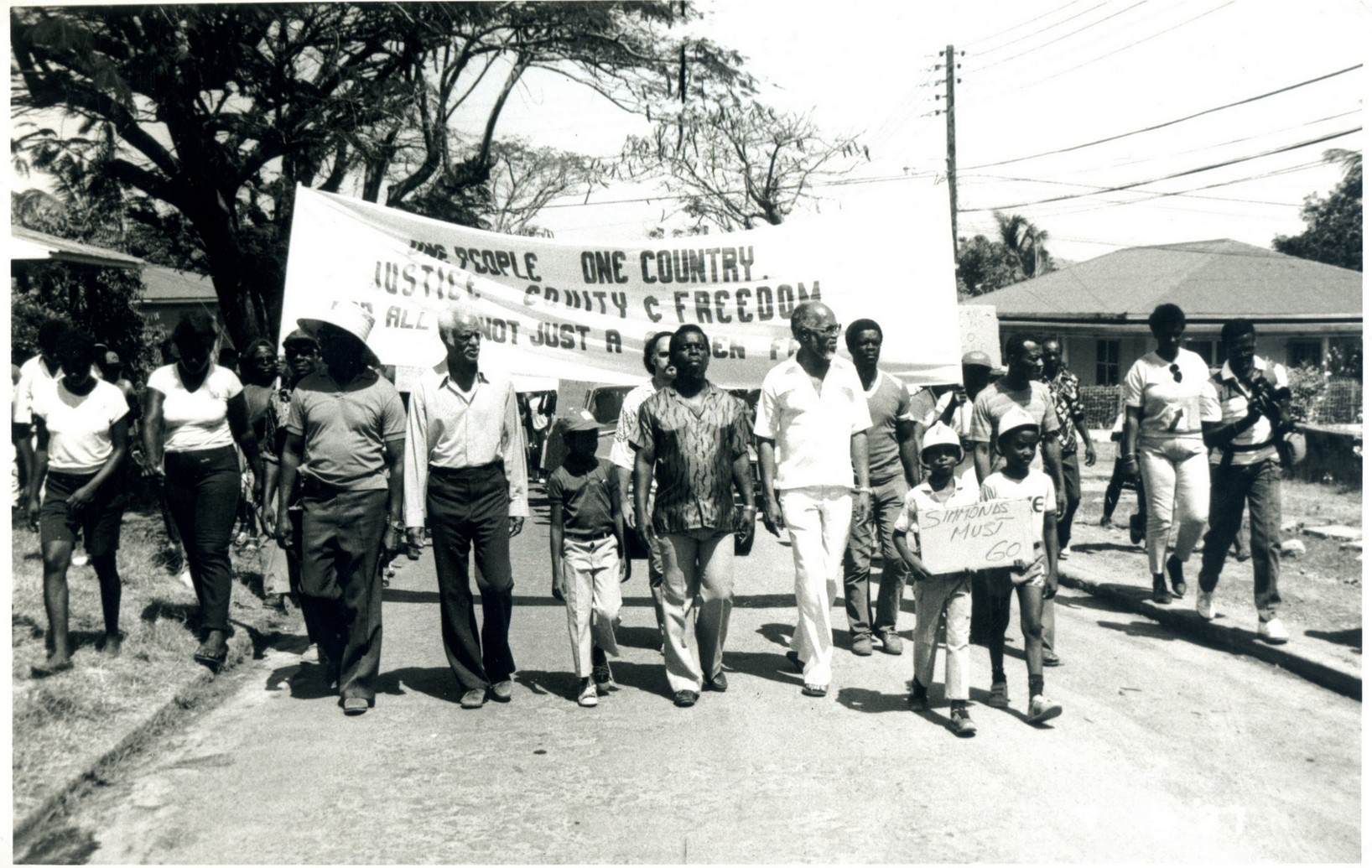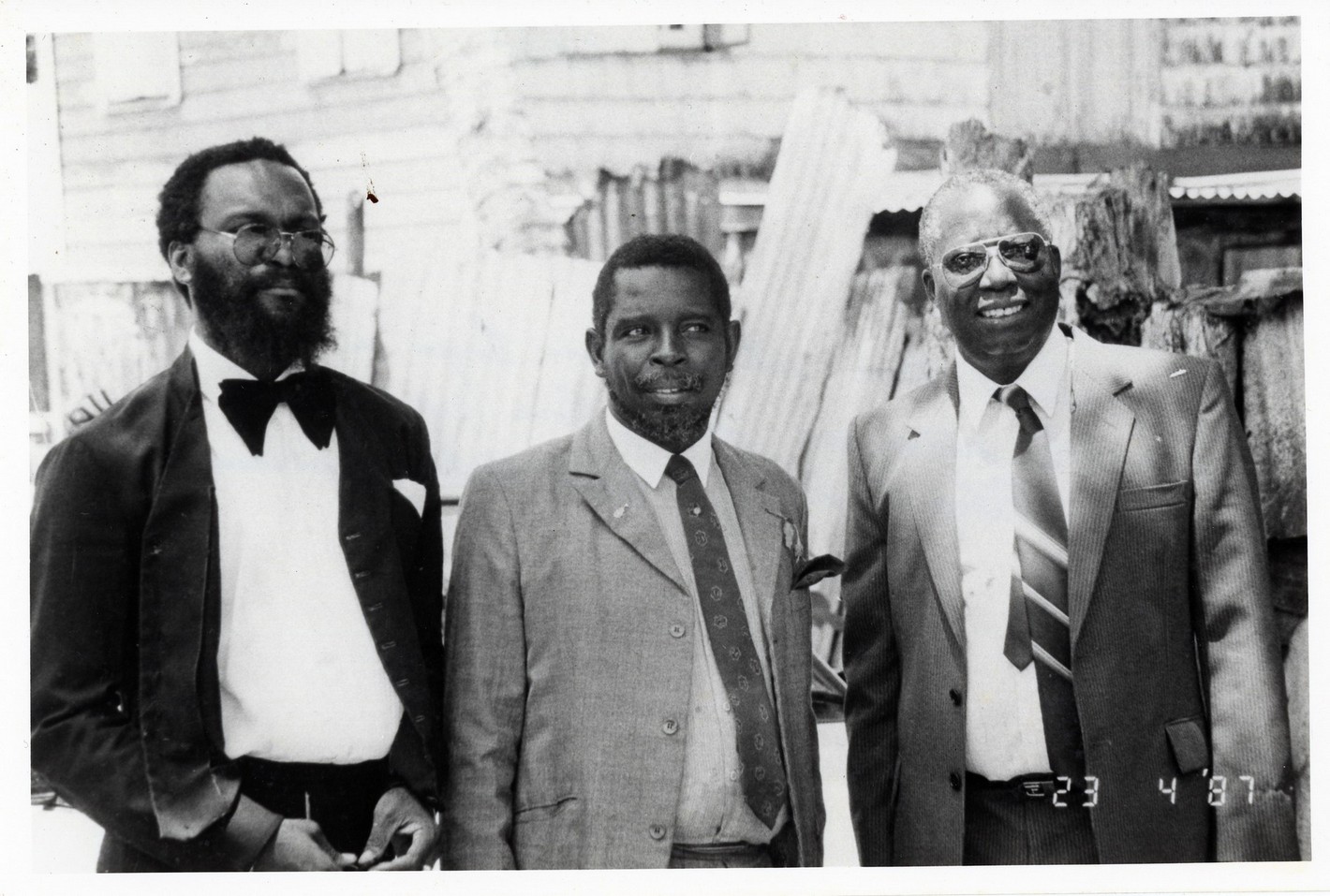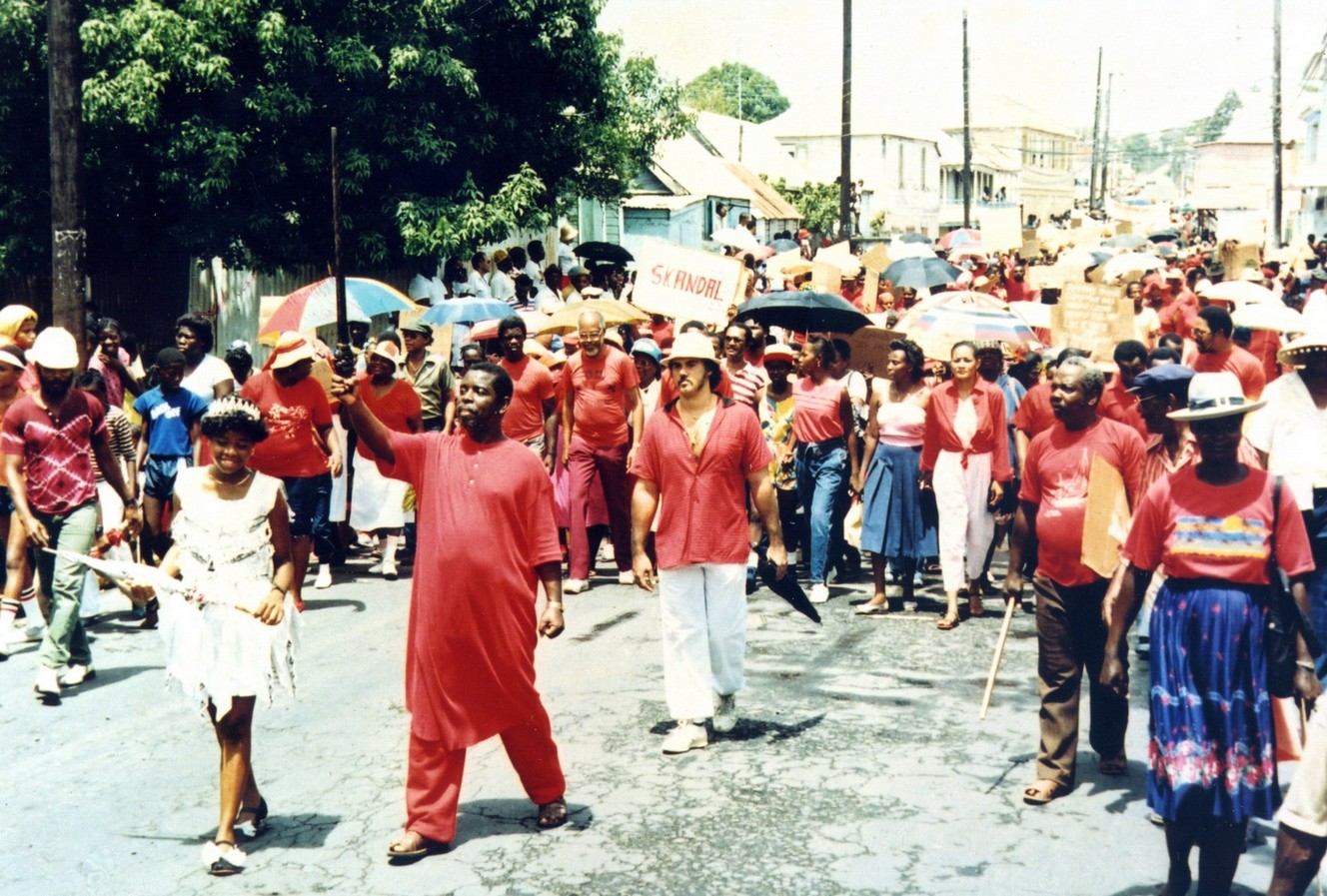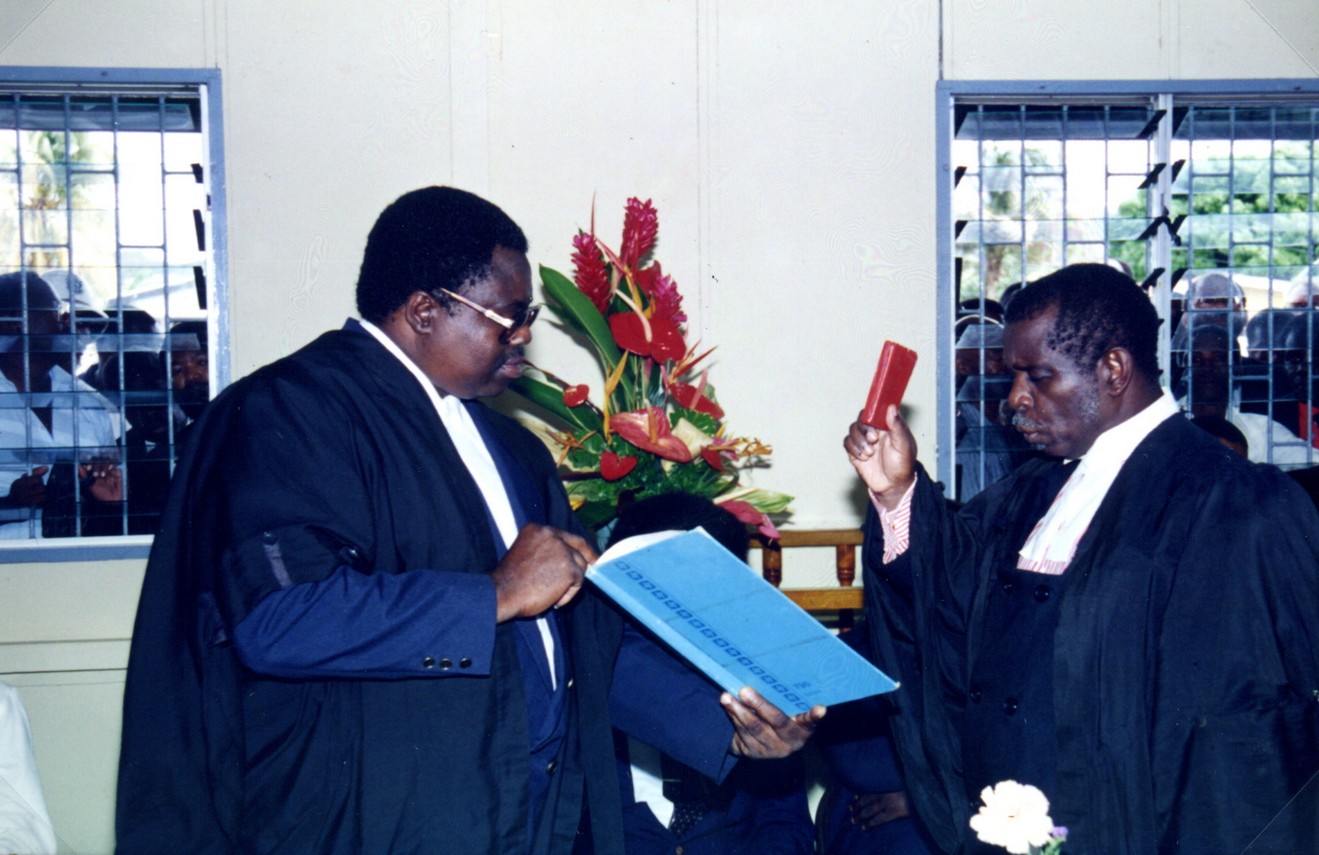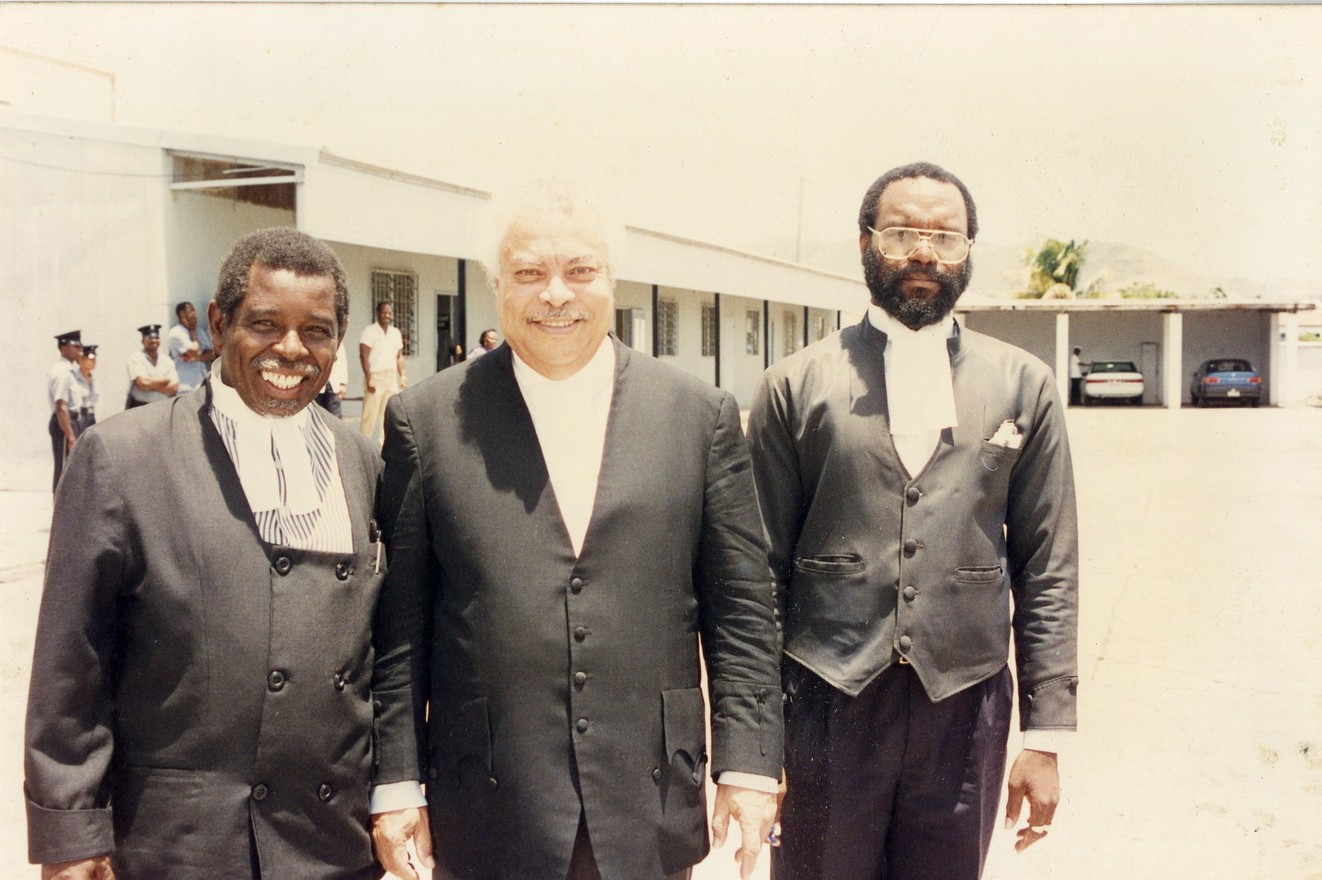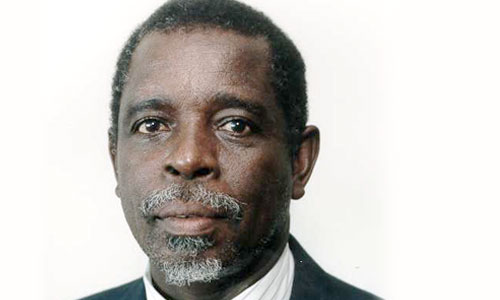
Lee L. Moore was born on the 15th February 1939. He was the son of Daphne Moore of Half Way Tree and Theophilus Penny of Middle Island. Miss Moore was a maid and Lee was her only son. His introduction to school life came through a kindergarten in Half Way Tree run by Mavis White. At five years of age he entered the Middle Island Government School. Life for mother and son was relatively comfortable until the day when the trash house they lived in at Godwin Ghaut burnt down. They moved into a rented wooden house and the financial situation became strained. Lee was then eight years of age.
In 1952 he won a Government Scholarship to the St. Kitts-Nevis Grammar School. It covered all his expenses except uniforms and games fees and although the situation was far from easy, Miss Moore was determined that her son would not lose this opportunity to gain an education. Soon after he found himself attracted to the Gospel Hall and became very much involved in the branch at Middle Island. Members of the church described the teenager as the “Wonder Boy Preacher,” or “the little boy with the Big Bible.” By age 14, Moore was teaching a Sunday School class. He organised hikes for young people in his village on public holidays and taught mathematics at evening classes for members of the Sunday School.
Five years later, young Moore was the recipient of the Leeward Islands Scholarship. Many had hoped that he would have pursued studies in medicine but he did not see himself as a doctor and he chose instead to follow a career in Law. He was accepted at the University of London, King’s College. During the summer vacation he worked at the London Stock Exchange in order to supplement his income. After a short stay in university lodgings, young Moore decided to move in with his mother who had married and moved to England. The family hoped that when the allowance from his scholarship was combined with the income made by his mother and stepfather, life for all three would have been made less difficult.
His oratorical skills made him Intervarsity Debating Champion for two consecutive years. In 1962 he graduated with an LL.B. upper second class honours and he also obtained a Diploma in Theology. He was awarded the Jelf Medal in the Faculty of Law and qualified as an Associate of King’s College. One year later, Lee Moore took his Master’s degree and was admitted to the Inner Bar of the Honourable Society of Middle Temple. After further research he took up the post as Lecturer in Law at the City of Birmingham, College of Commerce later renamed the University of Central England. As member of the diaspora in the United Kingdom, Moore witnessed the discrimination suffered by non-British residents. Thus he gravitated to the Council Against Racial Discrimination Moore had also intended at that time to pursue a Ph.D. on the subject, Land Laws of the Caribbean which he felt would have been the defining point in his career. But events in the Caribbean caused a change of plans.
In 1967 St. Kitts-Nevis-Anguilla embarked on the stormy road of Statehood in Association with Great Britain. The international image of the new state was tarnished from the outset by the Anguilla crisis. An effort to recruit promising young men was launched by Fitzroy Bryant. Moore was one of the persons approached. His response was, at first, cautious. However realising how much his talent and energy were required by the emerging nation, Moore quit his well paid, comfortable job in England and returned to St. Kitts, to serve as Public Relations Officer to the Premier. Governor, Sir Fred Phillip, recruited him to teach Law of Tort at his law classes at Government House. He set up his own private law practice and on the political front he threw his lot in with Young Labour which was just emerging as a vigorous branch of the St. Kitts-Nevis Labour Party.
His legal prowess was immediately recognised when in 1967 he defended the implementation of the National Emergency Powers and then successfully argued the legality of those actions before the Privy Council. In 1969 he was appointed counsel to The Wooding Commission which investigated the Anguilla affair. The following year he was appointed Counsel to the Commission which enquired into the Christena disaster.
In 1971, he contested his first election in the new State, running in electoral division number 4 which then included the area from Old Road to Sandy Point East. He beat William Herbert, founder-president of The People’s Action Movement by 826 votes to 682. Moore was one of three new members of the Labour team that emerged victorious in that year’s election. Premier Bradshaw appointed him Attorney General and Minister of Legal Affairs a position he held until 1979.
He stomped onto the political platform with a determination to serve his country “As Jesus said, ‘Man was not made for the Sabbath but the Sabbath for man’ so I tell you tonight that the people of this country were not created for the Constitution but the Constitution for the people. The Constitution will be servant not master in this country...” And he was willing to do so despite the disapproval of the opposition, “Who want peace, here’s peace, who want love here’s love, who want friendship, here’s friendship but who don’t want it brother, here’s power.” His outspoken statements on the political platform did little to endear him with certain sections of the general public and made him instead a target for the opposition’s attacks on the Party.
However The Labour Spokesman described Moore as “a specialist in his field who knows the laws of the game like the palm of his hand - the Clive Lloyd of the team.” It was precisely this knowledge of the law that stood him in good stead when he became involved in the negotiations and the drafting of legal instruments that resulted in a second attempt to unify the Caribbean. In 1973 the Treaty of Chaguaramas was signed launching the Caribbean Community and Common Market. He was also integrally involved in the creation of the Treaty of Basseterre which brought into being the Organisation of Eastern Caribbean States in 1981.
Lee Moore was to serve as Parliamentary representative for Constituency No. 4 up to 1984. He also served as second vice president of the St. Kitts-Nevis trades and Labour Union. Following the death of Comrade Bradshaw in 1978, Moore succeeded him as President of the Union.
His tenure as Attorney General was coloured by three cherished principles, the empowerment of the masses, integrity and good governance and individual rights. It was the first of these that Moore saw come into effect when the sugar lands were acquired in 1975. When the matter was contested in Court he channeled all his energy into defending the government’s position because he understood the greater benefit to the community that resulted from the passing of the Act. It was to his credit that when a case in court involved the State, he handled the matter personally.
When Premier Paul Southwell died in St. Lucia on the 18th May 1979, Lee Moore was with him. They were part of the delegation that was preparing the groundwork for the Treaty of Basseterre. As leader of the Party, Moore was immediately called upon to form the new government
The first few weeks of the new administration were fraught with controversy over Premier Southwell’s sudden passing, and Moore found himself the target of malicious rumours. In an address that chronicled the events and investigations following the Premier’s death, Moore declared, “I have never cherished any fear of any revelation because before God and man I have always known that my hands are clean.”
However it was with a spirit of optimism and hope that Moore greeted the new decade. Whilst emphasising the need for respect, hard work, and the setting of priorities he went on to declare “that before midway through this year we shall be a full sovereign and independent country.” To ensure that his policies for the new nation would have a broad base, he started 1980 with a consultation on Development Strategy to which were invited persons in both the private and public sector of the economy all of whom he hoped would be “involved in moving the country forward.”
But looming over the political path that Moore was trying to lay, was the matter of the seat in Central Basseterre, vacated by the death of Premier Bradshaw. Although the bye-election had returned Anthony Ribiero as representative for that constituency , a court case brought by Dr. Kennedy Simmonds the PAM representative had produced a reversal of the electorate’s decision. Whilst the Court of Appeal did not agree with the Judge’s course of action in the matter, it neither reversed the decision nor did it nullify the election. Added to this was the matter of a new by-election to fill the seat in Constituency no.1. With elections constitutionally due by the end of the year, Moore decided to go to the electorate and ask for a clear mandate for his administration.
The General Election of 18th February 1980 saw the majority votes being cast for the Labour Party but only four party candidates were actually elected. The remaining seats in St. Kitts went to the People’s Action Movement which quickly entered into a coalition with the Nevis Reformation Party and formed the new government. Lee Moore became the leader of the Opposition. The marriage of convenience was not expected to last long but Labour underestimated the willingness of the PAM leadership to compromise with NRP to maintain power. It was a compromise that was to find itself written into the new Independence Constitution. While Moore and Labour advocated separate local government for the two islands with an overall Federal Government, the new constitution gave Nevis alone its own local government and a right to secede.
The debate on the Independence Constitution was a heated one and Moore’s comrades Fitzroy Bryant and Fidel O’Flaherty found themselves brought before the court on charges of incitement and sedition because of statements made in political meetings. O’Flaherty faced a number of other charges in Magistrate Court arising out of a situation in a “Meet the People” meeting in New Town. Although he had been critical of Moore’s leadership, O’Flaherty still received the best defense that the party leader and his associates, C Fitzroy Bryant and Henry Browne could give. When in 1987, it was Moore’s turn to face trial again on charges of incitement and sedition, local lawyers and those from Antigua were present in the court room to show their support for him.
The years immediately after Independence saw a shift in the sphere of activity. Whilst still making his point at every opportunity in the House of Assembly, Moore and his party took their message to the towns and villages of St. Kitts with weekly public meetings. The courtroom became, from time to time, a testing ground in which individual constitutional rights were contested.
The 1984 election cost Lee Moore his seat in Parliament. His second defeat came in 1989 and this was followed soon after by a division of leadership within the Labour Movement. Whilst he maintained the Presidency of the Trades and Labour Union, leadership of the Party passed into the hands of Denzil Douglas, then a relative new comer on the political scene.
Moore’s untiring defence of his clients had become well-known in St. Kitts. The political affiliation of the person he represented was of no consequence to him. He merely saw before him a person entitled to the best defence under the law. In this respect he was even willing to work with political rivals to ensure that his clients were properly represented. Throughout his legal career, Moore worked constantly and consistently for many union members who had pending legal matters and were unable to pay fees and in more recent years he often offered his services free of charge to persons who appeared in court without a defence counsel.
A further recognition of Moore the jurist, came in 1993 when he was chosen as Senior Counsel to the Commission of Inquiry into the Sir Lynden Pindling Administration in the Bahamas. He played a similar role again in 1997 when the Williams Commission was set up to enquire into the activities of the PAM administration in St. Kitts.
Following the Labour victory of 1995, Lee L. Moore was appointed Ambassador Extraordinary and Plenipotentiary non-resident Permanent Representative to the United Nations. In this new role he was responsible for advising Government with regards to the ratification of treaties and conventions and with regards to its position vis a vis other countries and the UN. It was in this capacity that he was able to establish diplomatic relations with South Africa in 1998. He was also a member of a two-person commission to study closer political integration between Barbados and the member countries of the OECS.
In September 1999, Moore left St. Kitts for New York where he underwent medical treatment. Sir Lee Llewellyn Moore, KCMG, QC, LL,M died as a result of his illness on the 6th May 2000. He left his mark in St. Kitts and the wider Caribbean through his scholastic abilities, his extraordinary oratorical skills, his devotion to his country and his commitment to regional integration.

